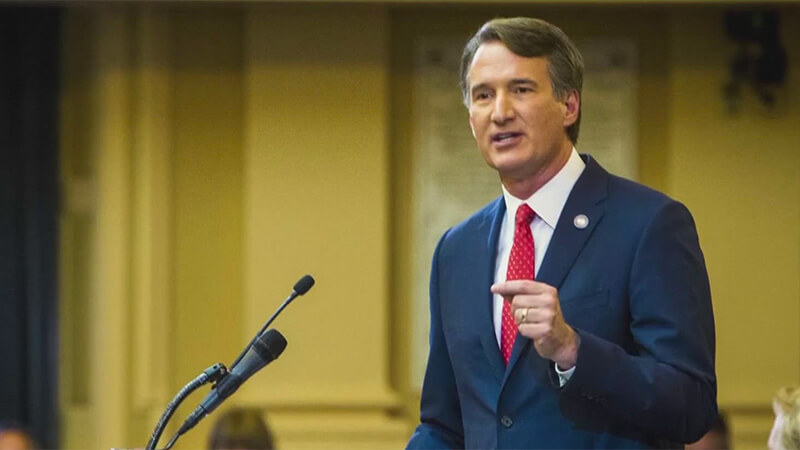By Scott Jenkins and Brian Sponsler
To those who appreciate good government and the smooth transition of power from one administration to another, the scene of Virginia Gov. Ralph Northam and Gov. -elect Glenn Youngkin together represented a moment to celebrate. Northam presented the next governor with his challenge coin and Youngkin graciously accepted it, while mentioning support for Northam-initiated programs.
To ensure that Virginia maintains a vibrant economy with broad-based prosperity, we recommend Youngkin and his transition team look closely at Republican governors in Tennessee and Indiana who faced similar and interesting circumstances.
Most directly relevant is the example of Tennessee when Bill Haslam (R) took over from Gov. Phil Bredesen (D) following the 2010 elections.
Bredesen’s signature priorities focused on education. He signed “Tennessee First to the Top Act of 2010,” which supported Tennessee’s efforts around the federal “Race to the Top” competition. In higher education and workforce development, he signed the “Complete College Tennessee Act of 2010” to improve college completion rates and hold colleges and universities accountable for outcomes.
Upon taking office Haslam supported and enhanced both initiatives, ensuring a continued focus on building a healthy economy for Tennessee. He took the best from his predecessor’s efforts, enhanced them with his own education and workforce priorities, and drove enactment of signature policies such as Tennessee Promise, Tennessee Reconnect, and Drive to 55.
It took an effort of political and personal courage to not start anew with these efforts, but rather to leverage the promising works of his predecessor. In fact, it’s vanishingly rare for a governor of one party to keep the branded efforts of the previous governor, especially one of a different party.
We encourage Gov. -elect Youngkin to take the road Gov. Haslem took and accelerate the foundational efforts of the prior administration and make them his own. He should use the catalytic nature of the transition of power to double down on efforts like G3 , Fast Forward , and the Virginia Ready initiatives. Doing so provides a clear path forward for Virginia to build on a robust economy. It ensures effective linkages exist between employer needs and training, and educational pathways for state residents.
Indiana provides a second example of how courageous leadership can drive state prosperity. In March 2016, Eric Holcomb probably didn’t plan on becoming governor very soon. But that changed when Gov. Mike Pence became the vice-presidential nominee. It took a Rube Goldberg set of political circumstances and a whirlwind campaign to earn him the governorship.
While Holcomb is also well known for his efforts around workforce development and his signature “Next Level” programs, he was moved to action on racial justice after the killing of George Floyd. He wanted to make sure that Indiana was a welcoming and opportunity-filled state for all Hoosiers, from all backgrounds, races, and ethnicities.
One decisive step he took was to create the position of Chief Equity, Inclusion and Opportunity Officer as part of his cabinet. This was a bold and not a wholly enthusiastically supported step coming just a few months before his re-election campaign.
As a pragmatic Midwestern, Republican governor, Holcomb took the questions and the heat from his base and campaigned hard to convince voters that an inclusive Indiana means more jobs and more prosperity for everyone. He won reelection to his second term with the most votes for governor in Indiana history.
We encourage Gov. -elect Youngkin to similarly look to the efforts his predecessor started on racial equity and, again, double down. Continue to make Virginia a place where racism and division can find no purchase on which to hold back the incredibly bright future of the state.
One of the hardest tasks of any gubernatorial transition is mapping the assets from the prior administration and determining what to jettison and what to support. Regarding post-high school education, workforce development, and racial equity, we encourage Youngkin to see the previous administration’s efforts as a starting place. He can build on those—with his own vision of a better, fairer, and more prosperous Virginia.
This article was originally published in The Roanoke Times.
Scott Jenkins is the strategy director for state policy at Lumina Foundation, an independent, private foundation in Indianapolis that is committed to making opportunities for learning beyond high school available to all.
Brian Sponsler is strategy director at Sova, consulting practice focused on improving the quality and accelerating the pace of complex problem solving in the areas of higher education and workforce development to advance socioeconomic mobility for more Americas.
